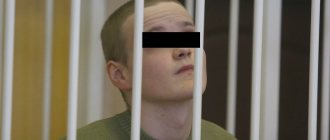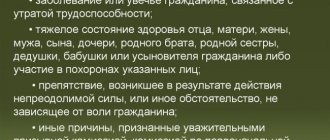The time period for the judgment to enter into force depends on which court issued it. If the case is considered by the district court, the verdict comes into force in criminal cases when the time for appeal ends, and the conclusion of the appeal is valid from the moment of proclamation. Difficulties with calculating time limits arise not only for applicants, but also for court employees, so it happens that citizens are unreasonably refused to accept applications.
It is advisable to stay within the limits when filing a complaint. It will be extremely difficult to restore lost time, given the formal approach of the courts. Only valid reasons, confirmed by supporting documents, are grounds for reinstating the deadlines.
To appeal a verdict, you must strictly follow the procedure: draw up a complaint in a certain form, collect evidence, meet deadlines. Even if a person is 100% right, but he has no evidence or the procedure is violated, then the chances of an appeal are reduced to a minimum.
On the competence of the court at the stage of execution of the sentence
Once the indictment is finalized, several issues arise that are within the jurisdiction of the court. The court decides the following issues:
- Decides whether there are grounds to postpone the execution of the sentence. For example, a valid reason for obtaining a deferment is the convict’s pregnancy. But granting a deferment is the right of the court, and not its obligation. To make a decision, the circumstances of the case, the personality of the convicted person, and other factors are assessed.
- Checks whether there are grounds to exempt from punishment. You can be released from sanctions if the convicted person is sick, and this illness prevents you from serving your sentence completely or for some time.
- Changing the conditions in which prisoners are held. The decision is made not by the court alone, but jointly with the management of the correctional institution. To make a decision, it must be approved by a commission of observers or a commission on juvenile affairs.
- Execution of a court decision. Includes enforcement of the sentence, resolution of procedural issues and control over bringing the conclusion into force.
The full range of issues that fall within the competence of the court is enshrined in Art. 368 of the Criminal Procedure Code.
Consequences of the entry into force of a court decision
The execution of a sentence or court order that has entered into force is mandatory for all persons participating in criminal proceedings, as well as for all local government and state authorities. Repeated consideration of the same proceedings in which a verdict has already been rendered is not allowed. The person guilty of the crime must serve the sentence on the appointed date and time, compensate for the losses caused by his action, or comply with the court decision on other issues. There is an article in the Code of Criminal Procedure of the Russian Federation for evading a person from serving a sentence, which again entails criminal liability.
Each court decision is characterized by prejudice, that is, the circumstances set out in the document do not need to be proven and cannot be refuted if other proceedings are to be considered. If, for example, one person was prescribed educational measures as a punishment, during which he committed another offense, then the new punishment that the perpetrator will suffer does not refute the previous one. That is, the offender will be visited by the investigator for educational discussions and work, and will also be forced to pay a fine or bear other responsibility, which is provided for in the article for the second offense he has committed. If the perpetrator is located on the territory of another state, then the issue of execution of the court order is resolved in accordance with the legal assistance agreement with that state.
Separately, I would like to note that the execution of the sentence can be delayed a little, but there must be reasons for this. The court may agree to defer punishment for people with serious illnesses, pregnant women and mothers of children under 14 years of age. Also, a minor deferment is given to people who have been recognized as drug addicts who have decided to undergo treatment, as well as to subjects whose family has difficult circumstances (fire, natural disaster, loss of a breadwinner).
The mandatory implementation of a court order is ensured at the state level. If there is an acquittal, then all individuals and legal entities are obliged to consider the person held accountable innocent. Accordingly, the court that acquitted the defendant is obliged to explain to him subsequently how to restore his violated rights. Procedural issues related to the execution of court verdicts are decided by the trial judge alone, since the Code of Criminal Procedure does not provide for the consideration of such cases by a collegial court. More details on the procedure for executing a sentence in criminal proceedings can be found in Article 389 of the Code of Criminal Procedure of the Russian Federation.
Powers of the courts
Justice in Russia is administered by four courts, each of which has its own powers:
- The first of them considers the case on its merits: examines the evidence, listens to the testimony of the parties. Based on the results of the consideration of the case, a verdict is made on whether the person is guilty and the punishment is determined.
- The appeal reviews those decisions that have not yet entered into legal force.
- Cassation examines the decision-making regarding its legality. Cassation judges examine the written materials of the case, but do not analyze the evidence. Therefore, new sentences are not imposed in cassation. By way of supervision, it is examined whether court decisions that have already received force comply with the law.
The basic principle of the judicial system is strict hierarchy and subordination. If an error has crept into the court decision, the case may be returned to the lower court for retrial.
When does the sentence take effect?
The countdown begins the day after the verdict is pronounced. The time for appeal ends in the last twenty-four hours of the period. If a cassation or appeal was filed, and the verdict is not overturned, then it becomes valid from the date of adoption of the cassation ruling. The verdict of the appellate court becomes valid as soon as the period for appealing in cassation has expired. Until the court verdict receives legal force, the relatives of the convicted person can come to see him.
Important! The deadline for execution of the court decision is immediate if the person is acquitted. In the hall where the trial is held, the defendant is immediately released from custody.
The procedure and period for the entry into force of a court decision
.
The judicial system of the Russian Federation has a multi-stage structure, as noted by the courts of first and second instance. The courts of first instance include magistrates, district and city courts, and the courts of second instance include courts of appeal and cassation. The difference between these courts is that the former are authorized to pronounce convictions and choose punishment, while the latter cannot do this; they only assess the legality of the sentence passed by the court of first instance.
The time period for the entry into force of the sentence begins from the moment the period for filing a complaint with the court of second instance expires. This period is 10 days. If, after consideration of the case, 10 days pass and no appeal is filed with the court of appeal, then the verdict enters into legal force.
According to Art. 390 of the Code of Criminal Procedure of the Russian Federation, the court decision must begin to be implemented by the end of the deadline for appealing the verdict in the second-level authorities, on the day of receipt of the cassation decision, but provided that no one sent complaints there or, as mentioned above, at the end of the time allotted for filing a petition for review verdicts.
The period for the entry into force of the sentence, which was adopted by the court of appeal, is determined on the day the decision is made. It is important to note that the period for the entry into force of the sentence is calculated taking into account holidays and weekends. In this case, the verdict must be delivered to the defendant no later than 5 days after the decision is made, in accordance with Part 3 of Article 390 of the Code of Criminal Procedure of the Russian Federation. If the person guilty of the offense is in a pre-trial detention center, then the period for the sentence to enter into force is calculated from the moment the administration transfers to him a photocopy of the conclusion.
It should be recalled that the Code of Criminal Procedure limits the time limits for appealing court decisions for people who are in custody or under house arrest. Instead of the generally accepted ten-day period, they are given no more than 3 days to challenge the court decision; if they miss this time, the original decision made by the trial court will come into effect.
If the court decision became valid on the basis of the expiration of the period for filing a complaint, but this period was subsequently reinstated, the original court decision loses force and cassation appeals can be filed against it. If the person who filed the appeal has withdrawn it, the court decision comes into force as soon as the court pronounces the decision to close the appeal proceedings.
Grounds for an appeal against a district court decision and a sample application
Every citizen has the right to appeal a sentence, but if the deadline for this is missed for compelling reasons, it can be restored in court. It is imperative to explain the reason for not filing a complaint in a timely manner. Even a court decision to refuse to extend the period for appealing a sentence can be appealed. Two levels of judicial authority were invented to ensure that each defendant had a chance to prove his innocence before the original verdict entered into force.
A court decision comes into force only in full, and not in parts. For example, if a sentence was passed against a group of people who committed an offense, but was appealed against only one of them. The verdict will have legal force only after the court has considered the proceedings simultaneously for all the accused in this proceeding.
Difficulties in the entry into force of the sentence
After the decision of the court of the first level is announced, the party who does not agree with the decision always has the opportunity to challenge it in the court of second instance. Quite often in practice there are difficulties in appealing a decision, which relate specifically to the timing of filing an application. The fact is that if a citizen is not in custody, then he is given 5 days to protest, during which he must receive a photocopy of the decision without fail. As for people who are not in custody, the order can be served within 10 days, and there is often a situation where the order is issued several days before the end of the appeal period. Accordingly, a person simply does not have time to file a complaint.
Before receiving the ruling, it is impossible to write a complaint and submit it to the appellate court, since the complaint must contain information specifically from the court ruling, which the applicant often does not have in his hands.
In such situations, lawyers recommend filing an additional appeal. It is necessary to write a complaint and, within 5 days after filing it, make additions to the main text of the appeal containing information from the judge’s decision. Using this advice, each person will be able to fully try to restore their rights and interests within the period guaranteed to them for this.
Peculiarities of the procedure for deciding and pronouncing a verdict under the Code of Criminal Procedure of the Russian Federation, Article 310
What difficulties may arise
Ten days after the conclusion came into force, the decision is executed. The execution of the decision takes three days. But this process does not always go smoothly; sometimes difficulties arise:
- The guilty person ignores the obligation to comply with the court decision. After the sentence comes into force, the convicted person is required to pay a fine. The period for paying the fine is thirty days from the date the decision enters into legal force. If the guilty person fails to comply with the court’s conclusion, the bailiffs will handle the collection. Based on the decision, they have the right to write off the amount of the fine.
- Circumstances arise that make it impossible to carry out the court's verdict. For example, the illness of a convicted person does not allow him to be required to serve a sentence (imprisonment). The law does not specify which diseases provide this opportunity. Therefore, the judge makes a decision at his own discretion, guided by medical documents. If doubt arises that the medical report is legal, a special examination is appointed. When the financial situation of the convicted person does not allow him to pay the fine immediately, the court may grant a deferment. The time for deferment starts from the moment the judicial opinion becomes effective.
- Release from punishment. If a law is passed that decriminalizes an act, the judge will consider mitigating or eliminating the sentence for the person who was sentenced.
Is it possible to appeal an arrest separately from a sentence?
In Russia, the procedure for considering appeals of convicts taken into custody upon a guilty verdict will change. Sooner or later.
The current procedure in the country leads to the deprivation of the right to a prompt review by a higher court of the lawfulness of their arrest and the right to release.
The Constitutional Court considered a number of appeals from lawyer Vladislav Filatiev , who is known for the fact that, together with his colleague, lawyer Mikhail Uvarov , he previously defeated the Chairman of the Investigative Committee of Russia (about this, on August 17, 2016, an article “Additional protection from arbitrariness” that, at the request of lawyers, the Supreme Court declared illegal the order of A.I. Bastrykin on the organization of procedural control over the investigation of criminal cases in the country), and in 2013 he achieved the introduction of a number of changes to the Traffic Rules of the Russian Federation.
By the verdict of the Leningradsky District Court of Kaliningrad dated July 18, 2022 Evgeny Sinyushkin was found guilty of committing a crime and was sentenced to imprisonment. Before the verdict came into force, the court changed the preventive measure from a written undertaking not to leave the place and proper behavior to detention, which was carried out in the courtroom.
Lawyer of the Law Office No. 1 of Kaliningrad Vladislav Filatyev , who defended the accused, filed an appeal in which he challenged the change in the preventive measure for his client. However, the appellate court decided to terminate the proceedings on the complaint and returned the received materials to the district court, as it came to the conclusion that the law does not provide for an appeal of the final court decision in a criminal case - a sentence by the same persons in parts at different times. Three months later, after the criminal case was received by the Kaliningrad Regional Court along with all appeals, the lawyer petitioned for consideration of his complaint about the court changing the preventive measure separately from other appeals on an urgent basis. But the judicial panel of the regional court refused to satisfy this request, explaining that the preventive measure for the convicted person is valid until the completion of the consideration of the case in the appellate instance.
The defense attorney filed a cassation appeal, in which he argued that the criminal procedure law does not contain any obstacles to the consideration of the defense's appeal against the verdict in terms of the court's decision to select a preventive measure on an urgent basis separately from other appeals and submissions.
At the end of September, the cassation judge of the Kaliningrad Regional Court refused to transfer the complaint for consideration at the hearing, agreeing with the conclusions of the lower court. A judge of the Supreme Court of the Russian Federation agreed with these decisions in November.
Since it was possible to change the detected uncertainty in the legal regulation of the issue of urgent verification of the legality of the defendant’s detention when sentencing and resolve the problem on its merits only by using the necessary forms of constitutional and judicial response, lawyer V.A. decided to appeal to the Constitutional Court.
In the first appeal, the applicant challenged the constitutionality of parts 10 and 11 of Article 108, parts 2 and 3 of Article 389.2, parts 1 and 4 of Article 389.11, part 1 of Article 389.36 and part 3 of Article 390 of the Code of Criminal Procedure of the Russian Federation , which, in his opinion, prevented the separate consideration of the complaint against arrest of Evgeniy Sinyushkin during the consideration of the case in the court of appeal.
By its ruling dated November 23, 2022, the Constitutional Court clarified that the law does not prohibit at this stage of criminal proceedings from resolving the issue of canceling or changing the preventive measure by filing a corresponding petition by the defense party directly to the appellate court, which is obliged to resolve this issue in accordance with the procedure , provided for in Article 108 of the Code of Criminal Procedure of the Russian Federation.
In the second appeal, filed in the interests of the convicted Sinyushkin E.A. , lawyer Vladislav Filatiev challenged the constitutionality of parts 1, 2 of Article 389.4 and part 2 of Article 389.8 of the Code of Criminal Procedure of the Russian Federation .
The defense lawyer indicated in the complaint that these provisions, due to their uncertainty and the meaning given to them by law enforcement practice, prevent the appellate court from considering the appeal of the convicted person or his defense attorney against the verdict regarding the court decision to choose a preventive measure in the form of detention earlier than 10 days from the date of the verdict, separately from other complaints of the convicted person or his defense attorney, not related to the issue of detention, as well as separately from appeals, presentations and objections to them by other persons.
According to the lawyer, in the current conditions, it is impossible for the convicted person to exercise the right to a trial without undue delay and to comply with the three-day deadline for review by the appellate court of the decision to choose a preventive measure in the form of detention. In addition, the convicted person is arbitrarily deprived of the right provided for in Article 9 (paragraph 4) of the International Covenant on Civil and Political Rights and Article 5 (paragraph 4) of the Convention for the Protection of Human Rights and Fundamental Freedoms to have a prompt review by a higher court of the lawfulness of his detention and the right to release , if the detention is recognized by this court as illegal or unfounded.
Raised by lawyer V.A. Filatiev The question turned out to be not as simple as it might seem at first glance. In the process of preparing appeals, he had to additionally study scientific legal literature, familiarize himself with the legal positions of the Constitutional Court and the European Court of Human Rights, and summarize Russian and foreign judicial practice.
On Friday, February 16, 2022, the Constitutional Court on its official website published the long-awaited ruling dated January 25, 2018 on the applicant’s complaint. As follows from the content of the decision, the Constitutional Court agreed with the statements of lawyer V.A. Filatyev. that the verdicts of the courts of first instance regarding the decision to select a preventive measure for the convicted person in the form of detention can be appealed separately from the verdicts on the merits.
At the same time, the Constitutional Court noted that the legal provisions challenged by the applicant do not violate his constitutional rights, since parts 1, 2 of Article 389.4 and part 2 of Article 389.8 of the Code of Criminal Procedure of the Russian Federation establish the general deadlines for appealing sentences or other court decisions and the consequences of filing appeals.
Consequently, the appellate court, which refused to consider the appeal against the arrest of Evgeniy Sinyushkin urgently, like all higher courts, was mistakenly guided by the norms of the criminal procedure law, which were not subject to application in this case.
In this regard, a question arises. Is it correct to assume that, based on the legal position of the Constitutional Court, the question arises regarding the decision of the court of first instance to select a preventive measure for the defendant in the form of detention, which, by virtue of paragraph 10 of part 1 of Article 308 of the Code of Criminal Procedure of the Russian Federation, is included in the operative part of the guilty verdict , in order to urgently verify the legality of a decision on a measure of restraint in the manner of procedural analogy, special rules are subject to application that determine shortened deadlines for filing and consideration of complaints against such decisions by a higher court, namely, the provisions of Part 11 of Article 108 of the Code of Criminal Procedure of the Russian Federation, according to which the court decision on the election of as a preventive measure, detention can be appealed against within 3 days from the date of its issuance, while the appellate court makes a decision on the complaint no later than 3 days from the date of its receipt?
Lawyer V.A. Filatyev generally spoke positively about the decision taken by the Constitutional Court, calling it “a breath of fresh air”, and expressed confidence that Russia will soon have a mechanism for judicial control over the legality and validity of choosing a preventive measure for a convicted person before the conviction comes into force, which will contribute not only to strengthening the guarantees of the rights and freedoms of a person taken into custody, but will also have a beneficial effect on the timeliness of correction of judicial errors and on the results of the defense in a criminal case. But for this mechanism to appear, a lot of work will still need to be done.
Answering our questions, lawyer Vladislav Filatyev also explained:
“Practicing lawyers are often faced with the fact that the consideration of appeals and submissions against a verdict is delayed. This is explained by circumstances related to the appeal procedure and the absence in the law of regulation of the time limits for sending a criminal case with complaints, submissions and objections to them to the appellate court.
During this period of time, the convict, who was previously at large and in respect of whom the sentence has not yet entered into force, is forced to await his fate in conditions of strict isolation, and the period of his stay in the pre-trial detention center is indefinite.
The taking into custody of a defendant, in particular one who has denied his guilt in a crime, when the verdict is announced, is carried out, as a rule, in the absence of factual and legal grounds for this and only due to the fact that he is given a real punishment in the form of imprisonment.
Being, in fact, a relic of the Soviet past, a legacy of accusatory stereotypes that have not been eradicated from the minds of judges, such detention is firmly established in Russian judicial practice.
In my opinion, in such cases, the courts violate the principle of the presumption of innocence, since in the absence of a sentence that has entered into legal force, detention is not carried out in order to ensure the completion of the procedure for considering the case within a reasonable time, but solely for the purpose of executing the punishment.
It is important to understand that it is extremely difficult for a defendant who is not involved in the commission of a crime to defend himself. After the court handed down a guilty verdict, it is more difficult for him to cope with this task. However, despite being in an extremely depressed state, hope for justice remains.
To worsen the situation of someone who was counting on an acquittal and to take him into custody sometimes means to deprive him of his last hope, which in itself has nothing to do with justice.
Therefore, I am convinced that arresting after the verdict is announced is a wrong, shameful tradition that needs to be gotten rid of.
If detention has occurred, the convicted person must, in any case, have the opportunity to immediately verify the legality of such a decision by a higher court and have the right to release.”
— Recently, the court found the former Minister of Economic Development of Russia Alexey Ulyukaev guilty of accepting a bribe of two million dollars from the head of Rosneft Igor Sechin and sentenced him to eight years in prison. After the verdict was announced, the guards took him into custody - handcuffed him and led him into a cage. Do you think that the court arrested Ulyukaev illegally?
“From my point of view, there were no convincing grounds for placing the former minister in custody. It is completely incomprehensible to me how Ulyukaev, if he continued to remain under house arrest, could prevent the appeal hearing of his case in the Moscow City Court.
The problem was that neither Ulyukaev nor anyone else who found himself in a similar situation had the opportunity to timely review the sentence in terms of choosing a preventive measure. The current practice of applying the law in the country did not allow this to be done.
— When do you think a mechanism for appealing against detention, separate from the sentence, will “work” in Russia?
We can say that based on the decisions adopted by the Constitutional Court of the Russian Federation, the situation has already changed, and the legal position formulated by it, I very much hope, will be accepted in the practice of courts of general jurisdiction.
Separately, I would like to note that I submitted relevant documents to the Council under the President of the Russian Federation for the Development of Civil Society and Human Rights, on the basis of which it is possible to take specific urgent measures aimed at improving procedural legislation in matters of applying preventive measures.
As far as I know, on February 26, 2022, at the initiative of the HRC, a special meeting is being held on the topic “Ensuring human rights while improving procedural legislation.” Representatives of the Supreme Court of Russia, the Ministry of Justice of Russia, specialized committees of the Federal Assembly, the legal community, and experts from human rights organizations are invited to participate in the special meeting.
In this regard, based on the results of the special meeting, Recommendations of the Council will be adopted, taking into account the legal positions expressed by the Constitutional Court on my complaints, and the legislator may be asked to make the necessary changes of a legal and technical nature to the Criminal Procedure Code, eliminating the uncertainty regarding the possibility of appealing against the arrest separately from the verdict on the merits, due to the unsuccessful construction of the literal content of normative instructions. But these are just my hopes, which, unfortunately, are unlikely to come true.
Considering that the Constitutional Court in its Ruling of January 25, 2022 did not directly indicate the need to apply other legal norms by way of procedural analogy, in particular the provisions of Part 11 of Article 108 of the Code of Criminal Procedure of the Russian Federation, most likely, another appeal to the Court will be required on this very issue.
Appeal against the decision
When a complaint is filed, the legality of the judicial conclusion and the very fact of the conviction are called into question. There are several grounds for overturning a sentence:
- Inconsistency of the court verdict with the circumstances that were proven during the consideration of the case.
- Distortion of the norms in force in criminal proceedings.
- Making an unfair decision.
- Incorrect application of the law.
Both in Russia and other countries: Ukraine, Kazakhstan, a sentence can be overturned only when it was passed in gross violation of the provisions of the law. The circle of persons who have the right to write a complaint is clearly defined:
- the convicted person and his representative;
- prosecution;
- the victim and his representatives;
- other persons whose interests were affected by the court decision.
If you draw up the documents correctly, you will have a chance to overturn the verdict. To do this, it is important to competently draw up a complaint indicating the nuances of the case that, in your opinion, were left without due attention. If it so happens that you missed the deadline allotted by law for appealing, file a petition for its restoration.







